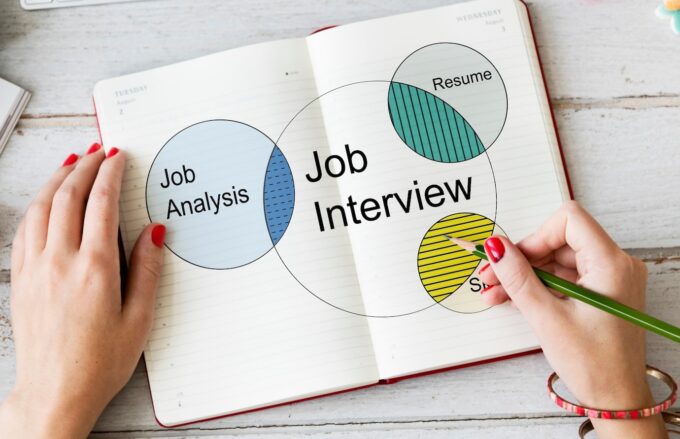Recruiting an executive can be a rewarding process that can give rise to the opportunity for you to work with interesting people, immerse yourself in their diversity, and bring your work team closer together with the right new executive hire.
It’s human to make a hiring mistake when choosing the next executive for your company; however, you can avoid this by being aware of some of the mistakes one can make when hiring an executive and avoiding them altogether.
1. Writing Unclear or Misleading Job Descriptions

Before you begin your hiring process, you need to establish the type of executive you want to attract to your business and state that clearly in your job description. If you don’t have a concrete idea of an executive’s responsibilities and the skills needed, you can seek the help of professional recruiters like penderhowe.com who have successful experiences hiring top applicants.
By having a clear outline of the knowledge, experience, and talent you are looking for in your business’s executive, you will be able to narrow down your candidate options and increase your probability of interviewing the candidate who fits your requirements. Your job description should include:
- The job title and purpose
- The primary responsibilities and duties
- Working conditions, such as whether it’s an onsite or remote opportunity
- The required skills and qualifications for the executive role
Remember to use keywords for roles in an executive position and ensure that you do not oversell the position with false promises like quick promotions and salary increments that may lead you to lose a new recruit after they begin to feel frustrated from you not meeting your exaggerated promises.
2. Being Too Rigid With the Hiring Process
Having a standardized hiring process can help you comb through high volumes of applicants; however, being too rigid with your hiring process can make you miss the perfect candidate for the executive role.
Companies, roles, and people change; hence, if you don’t pay attention to these changes and cater to them in your recruiting process, your strict hiring protocol may slowly become a hindrance to hiring the right talent.
As you carry out your executive hiring process, be flexible to deviate from the standard and update the process for a more personalized approach that can enable you to assess candidates effectively and identify the kind of executive your business needs.
3. Overlooking Internal Talent

Looking for new applicants to bring a fresh perspective to the business and team can be a helpful tactic; however, your new executive hire may be significantly more likely to succeed at the role if they come from a referral within the company.
Promoting your existing employees and training them for the executive role can boost morale in the workspace and improve productivity as your employees look forward to the possibility of a promotion as a reward for their dedicated work.
Filling your executive role internally can also help you save on the cost and time associated with advertising on job boards to interview external candidates. An executive candidate who is an existing team member or friend of your employees is likely to get up to speed with the new role while being familiar with your organization’s values and mission more quickly than an external applicant.
4. Solely Basing Your Hiring Decision on a Candidate’s Work History
Checking your candidates’ references to confirm their experiences and hear more about their skills from their recent employers can help you obtain the details you need to determine whether a candidate is suitable for the role of your business’s executive.
Instead of assuming that everything on their resume is true, it would be wiser to confirm their claims of achievements from their experience to highlight honest candidates who could be a good match for the role while eliminating candidates whose applications have falsehoods.
5. Rushing or Dragging Out the Hiring Process

Rushing the hiring process to get done with getting a new recruit can have you hiring the wrong person for the job and result in more damage than having an unfilled position. It’s advisable that you take ample time during the interview process and bring in at least three candidates to help you assess and compare their strengths and weaknesses for a better decision.
Likewise, stringing your executive position applicants for too long can discourage qualified candidates who may jump onto newer opportunities when they notice your indecisiveness.
Having too many interview stages can also lead to potential candidates dropping out to seek opportunities from organizations with a more accommodating and reasonable interview process.
6. Avoiding Candidate Feedback
The best way to combat your hiring mistakes is to incorporate a candidate feedback survey into your recruitment process. Feedback, especially from your unsuccessful applicants, can help improve your hiring process and optimize it to help you pick out the best employees during your next hiring.
It’s important that you get feedback from successful applicants, too, albeit they may offer responses that are biased, seeing as you’ve just hired them. Unsuccessful candidates, on the other hand, will rarely refrain from giving you constructive feedback about your recruitment process.
7. Failing to Prepare
As a hiring manager, you need to review your applicants’ resumes and come up with questions or conversation topics based on their mentioned competencies and achievements.
Interviewing your executive candidate without preparation can lead you to ask shallow questions such as, ‘’Why do you want this job?’’ which most applicants will respond to with inauthentic answers pulled from google.
Preparing for the interview with questions tailored to each applicant can help you learn more about your candidates’ background, inquire about any shady areas in their resume, and also give you the opportunity to assess how they would tackle scenarios in their role as executive with personalized questions.
8. Waiting for the Perfect Candidate

Since the goal of your interview is to assess whether an applicant is the right fit, it’s best that you listen more than you speak during the interview and ask open-ended questions to allow your candidate to provide further information in their responses explaining their experience and skills better.
You may have a picture of the ideal executive you need for your organization in mind; however, keeping the position unfilled for too long may jeopardize your team’s productivity and demoralize employees who are picking up the extra workload.
It would be better to hire an executive who meets most of your key requirements and allow them to pick up job-specific skills while they occupy the vacant position.
Endnote
As you follow up with candidates during the recruitment process, it is important that you don’t bombard them with too many follow-up messages that may discourage an otherwise interested candidate.
If an applicant you are interviewing stops responding even after checking in with them after you notice their unresponsiveness, it’s best to move on to the next applicant instead of inundating their inbox and wasting time you could use to get a better-suited candidate for the executive role.









